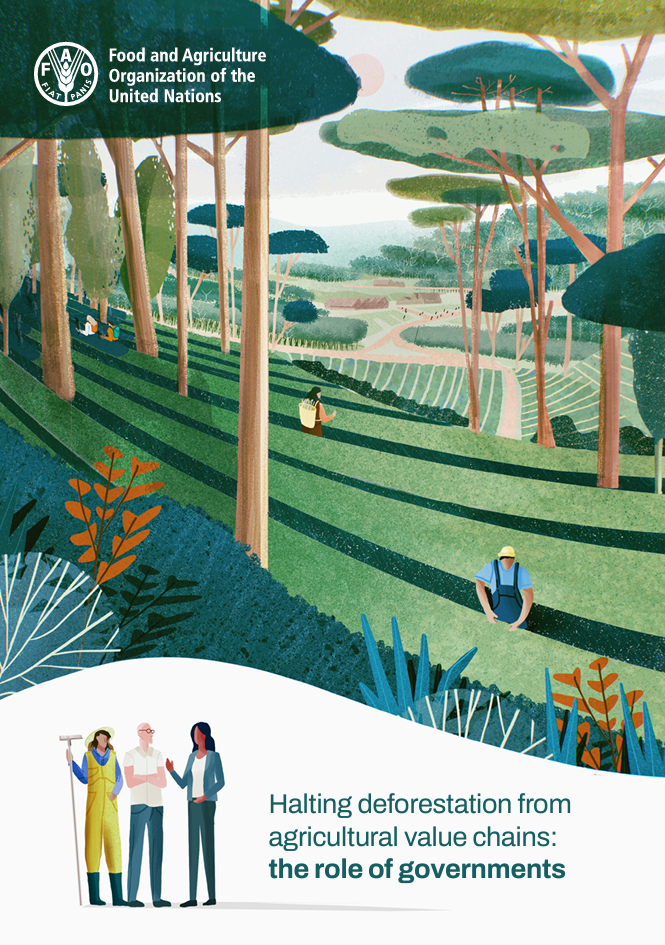Halting Deforestation from Agricultural Value Chains: The Role of Governments
Agriculture and forestry are inherently linked, between 2000 and 2018 almost 90% of deforestation was attributable to agricultural expansion. On top of this, it is projected that by 2050 165 to 600 million more ha of land for crop and livestock production – much of which is covered by forests and critical ecosystems – will be needed to meet the demands of a growing population. Large-scale systemic change is therefore needed to transform global agricultural systems, and this is not achievable without governments.
This report from the Food and Agriculture Organization of the United Nations (FAO) pushes for greater public sector involvement from consumer countries to help shape market regulation. The report stresses that governments are key to developing the enabling conditions across sectors and stakeholders for more sustainable agricultural systems. It highlights key actions that governments must adopt to meet the demands of the future. Such as better coordination across countries that produce and consume agricultural commodities associated with forest conversion.
As well as pushing for a greater role from governments, FAO’s report also highlights the role that integrated landscape approaches from jurisdictions can play in addressing the problems with the global food system. It highlights case studies from Vietnam, Indonesia and Brazil to provide examples of how jurisdictional approaches can work in reality on the ground.
